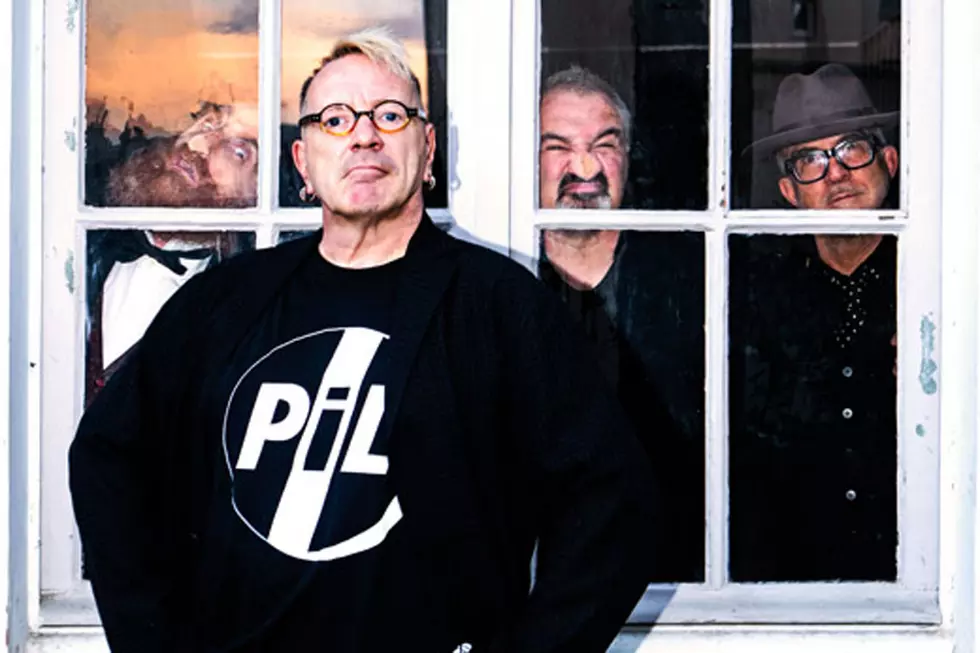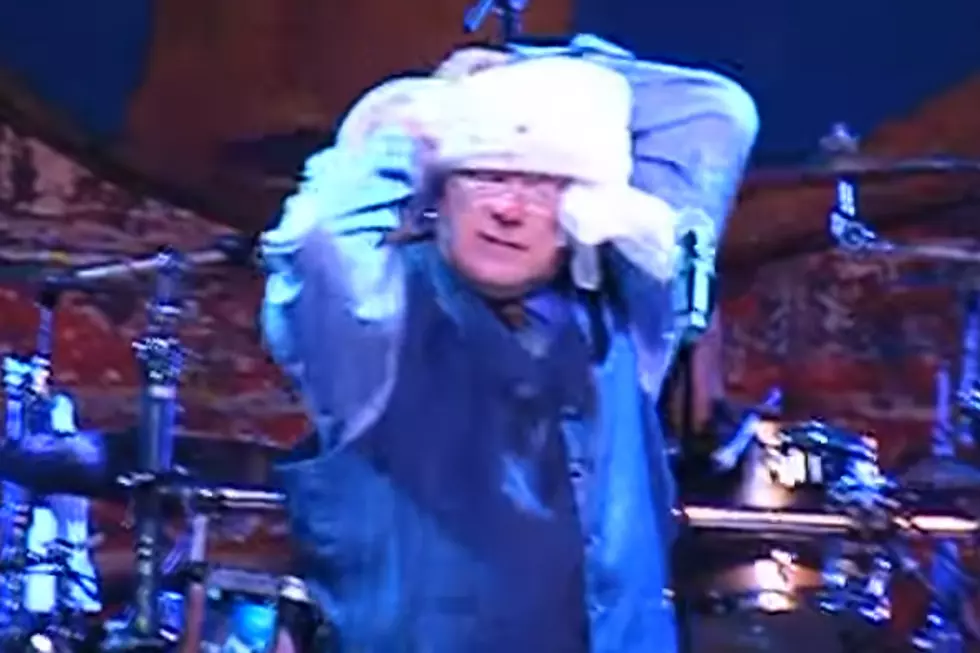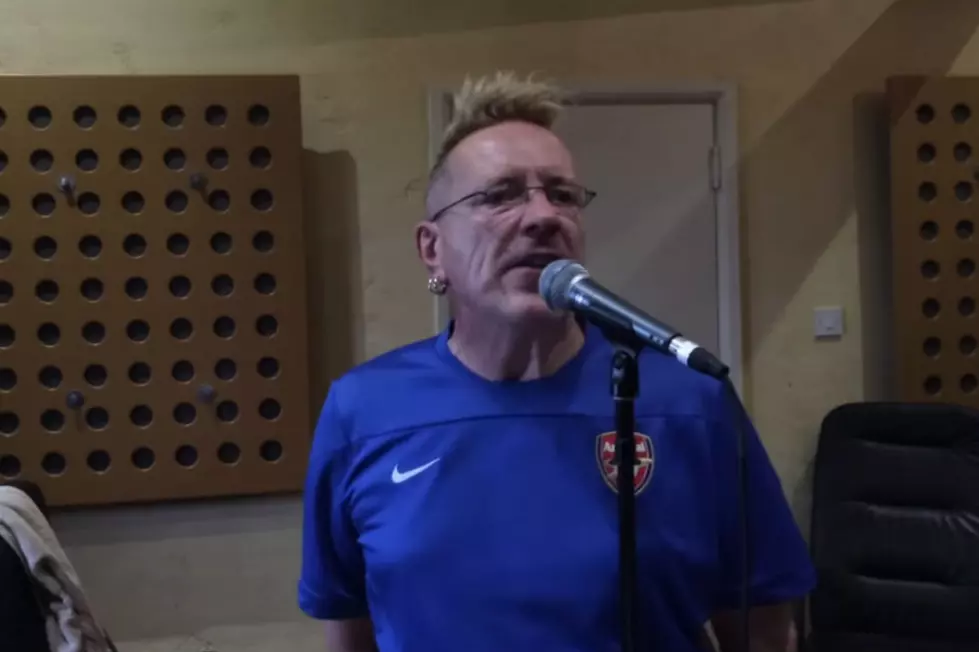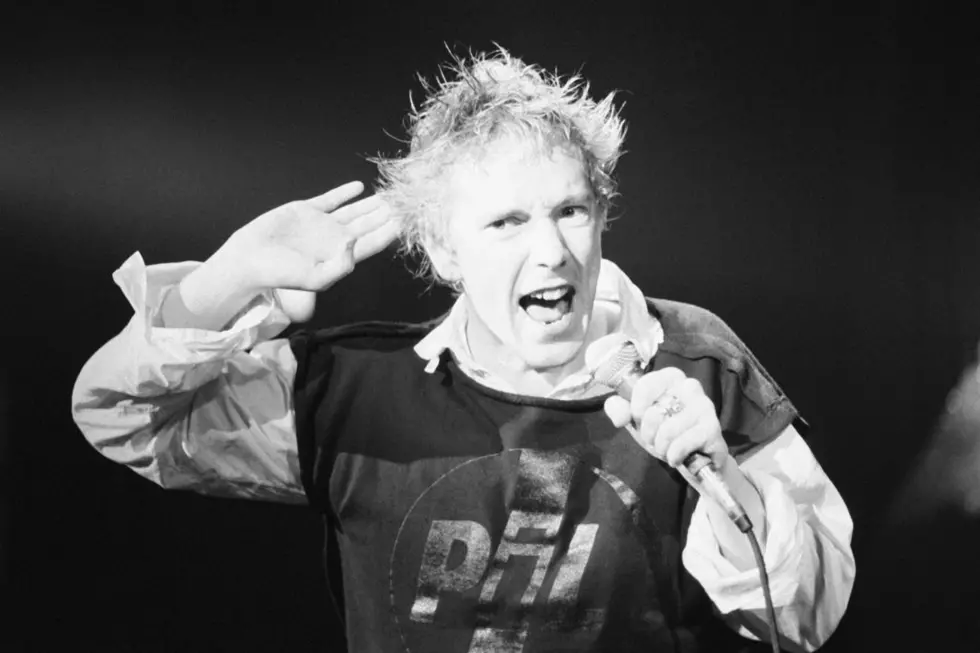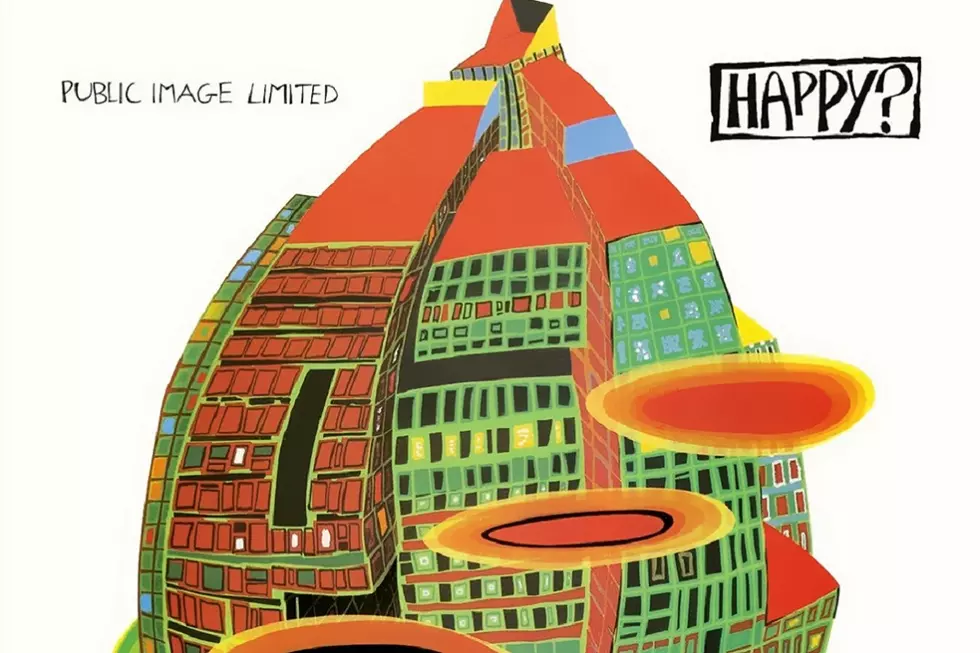
30 Years Ago: Public Image Ltd. Find Stability on ‘Happy?’
In the mid-'80s, John Lydon was a man without a band. He still carried the moniker of Public Image Ltd. – the group he had formed once the Sex Pistols imploded – but had ditched all of the band’s other members due to control issues and drug addiction. After making 1986’s Album, a solo album in all but name, Lydon started to assemble a new band to fly the PiL flag.
To promote the metallic grooves of Album (and its single, “Rise”) on tour, the singer put together something of a post-punk supergroup. On guitar were John McGeoch -- of Magazine and Siouxsie and the Banshees -- and Lu Edmonds -- of the Damned and the Mekons -- who also played keyboards. Bruce Smith, of the Pop Group and the Slits, sat behind the drum kit. American Allan Dias joined on bass. On the road, the quintet landed on PiL’s new sound -- still dance-oriented, but with a melodic bent and slightly less ragged feel. Lydon appeared pleased… at least as pleased as a man that was once known as Johnny Rotten can be.
“This is a complete enterprise between the lot of us. We are all equal,” Lydon told MTV Europe in 1987. “This is the permanent lineup of Public Image now, and will be for a long time…. It’s righteous. It’s about time, and all.”
After a long stretch of touring, Lydon sought to make a new album with McGeoch, Edmonds, Smith and Dias and approached Album’s producer Bill Laswell to again work on a PiL LP. But the frontman was disgusted with Laswell’s insistence that he scrap the new lineup to record with studio hands (as had been the case with the previous album). As a result, Lydon decided to keep his band and change the producer, settling on Gary Langan (ABC, Art of Noise) to co-produce with the group.
The album would be titled Happy? -- the question mark perhaps signifying a challenge to fans about the state of music, or a question directed to the world at large, or even an inward query of Lydon and his newly stable band. Regardless, the singer was poised to continue to provoke listeners with his lyrics, which questioned religion (“Save Me”) and decried the “lemmings” of the British public (“Hard Times”). On the record’s third track, Lydon returned to a theme he had ranted about in his days as a Pistol. “The Body” was something of a sequel to “Bodies” on Never Mind the Bollocks, taking aim not just at what the singer considered the selfish act of abortion, but also the circumstances that could bring about unwanted pregnancies.
“Women have the right to have abortions, period! This is somewhere where no one should interfere, it should never be considered illegal,” Lydon later clarified his stance to Volume magazine. “But then, you shouldn’t be able to get yourself into that position in the first place. It’s only ignorance and lack of education about contraception that leads to these disasters.”
Lydon perceived disaster everywhere, which is why he said that Happy? took on a feel of “doom, death and destruction.” While the singer was focused on his lyrical rage, some of the band’s members weren’t as thrilled with the musical side of the album, particularly in Langan’s production.
“It sounds really ’80s to me, an ’80s rock production. Actually I hear more production and the studio equipment than I can hear of the band, and that’s the disappointment for me,” Edmonds said in 1999. “I think there was potential for Happy? to be a great album but I think we had the wrong producer. I mean, Gary Langan’s a very good producer, a really nice guy. But he was the wrong guy because in the end he ended up squashing all the scruffy bits.”
Happy? was released by Virgin on Sept. 14, 1987 to gently positive reviews and decent sales (it made No. 40 on the U.K. chart and No. 169 in the U.S.). As with Album's “Rise” before it, lead single “Seattle” became a dancefloor hit and a video to be shown on alternative rock programs such as 120 Minutes. After playing their own headlining tour that fall, PiL were offered the change to play to bigger – and decidedly different – crowds, by opening for INXS as they promoted Kick in America in 1988.
“They were just going through the motions of big rock stars, and the Mick Jagger moves from A to Z were fully copied. Bit sad,” Lydon told Q about the Australian rockers in 1989. “It was a wonderful competition to see if Public Image could win over a rock audience like that. Much more extreme than playing to a load of rowdy old punks...”
Before the year was out, guitarist/keyboardist Edmonds departed the band, due to hearing problems (although he’d later rejoin Lydon in the latest incarnation of PiL that began in 2009). But the rest of the band held together for the rest of PiL’s original run. Perhaps John Lydon was happy, after all.
How 50 of Alternative Rock's Biggest Bands Got Their Names
More From Diffuser.fm

